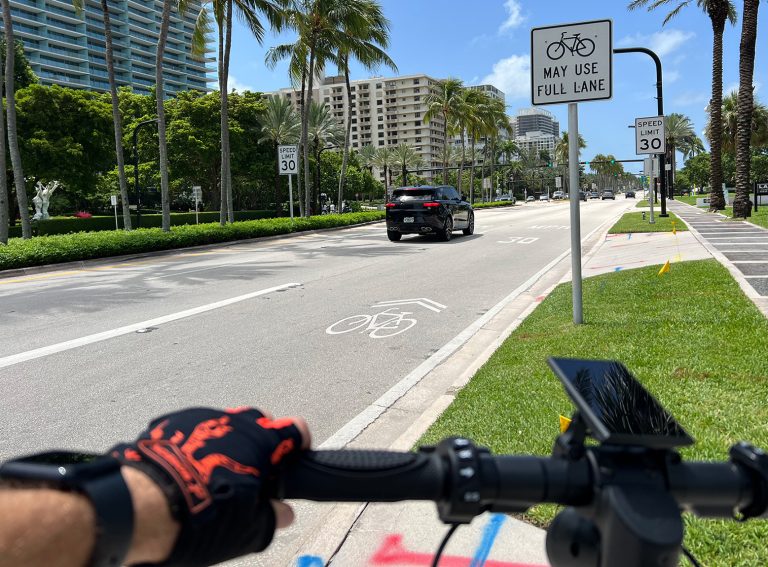Sylvain Delavergne, French Coordinator of Clean Cities Campaign.
In Paris, e-scooters have created much division – are they the perfect zero-emission urban mobility tool or a scourge of pedestrians? In January, the mayor of Paris, Anne Hidalgo, stunned many by announcing the city will hold a referendum on whether they should be banned.
At Clean Cities Campaign (CCC), we believe that no measure should be off the table when it comes to tackling the twin crises of air pollution and climate change. If we are to reduce our emissions in line with the commitments in the Paris Agreement, we will need to use all the tools available to us. We know the health impacts of air pollution, mostly from road transport – it is linked to over 300,000 early deaths across Europe, as well as a host of illnesses and conditions including asthma, dementia, stroke, lung disease, mental health problems in teenagers, cancer, Parkinson’s and miscarriage.
We have seen rapid and striking change on our distinctive Parisian street corners in the last few years as free-floating e-scooters and e-bikes have appeared. They have proved very popular, providing a flexible option for people needing to get somewhere in a hurry. Research shows that around half of e-scooter journeys are “last mile” – often from public transport hubs as a replacement for delayed buses or long walks. Research into e-scooter use in England from 2021 showed that on average they replace one in five car trips as users choose to leave the car at home. Remember that 65% of Parisians don’t own a car, so it makes sense that they will choose an easily available alternative.

Teething troubles
Without doubt these changes in our cities have generated new problems – we have all read about collisions between pedestrians and e-scooters riders on pavements, we have heard about users throwing machines into the Seine, or littering the pavements with abandoned or broken vehicles so that disabled people and those with children and pushchairs cannot get past.
At CCC we are in clear agreement that the current management of e-scooters in Paris (or ‘trotties’ as we call them) is not working as well as it could. That’s why the CCC, together with other associations including Respire, are encouraging city leaders to consult widely on the best policies and regulations which can help e-scooters work for everyone. Many of the best options have already been put forward in Paris – such as issuing licence plates to e-scooters, creating non-obstructive, defined parking spaces for the machines, a 25 km/h speed limit, age limit of 18 for riders and making operators contractually responsible for regular patrols to check that e-scooters are working and parked correctly. But what we are lacking now is effective enforcement.
A ban is not the way forward
CCC believes that an outright ban of shared free-floating “trotties” at this point would be counterproductive and would lose us valuable time in our fight against the damage caused by air pollution and carbon emissions from road transport.
The context in Paris is very specific – the streets are often small and crowded with parked cars. As campaigners we were delighted when mayor Anne Hidalgo committed to removing one in two car parking spaces in the city as well as tripling the number of bike parking spaces and creating 180 km of new dedicated cycle lanes. But the municipality is already behind on implementing these changes. If this work was speeded up it would easily free up space for trotties, as they are much smaller than cars.
Other arguments against e-scooters – that they are dangerous and cause accidents – need to be taken with a pinch of salt. Cars also cause accidents, injury and death on our streets, and yet as societies we have chosen without thinking to accept this level of risk. There is also a real danger that if shared trotties are banned outright, the use of private e-scooters will multiply and these are much more difficult to regulate.
As we get closer to 2030 and commitments from European leaders to slash carbon emissions, road transport will need to play its role. CCC believes that private ownership of vehicles in our cities is starting to make less sense. Sharing resources and modes of transport is much more efficient than individuals parking two tonne vehicles on roadsides for often only occasional use. Not everyone can walk or wants to walk, not everyone wants to ride a push bike up a huge hill.
With all this in mind we can see that better regulated and properly maintained fleets of readily available, cheap and flexible e-scooters and e-bikes must continue to play a role as we build the cities of the future. We are hoping that Parisiens will agree with us when they turn out to vote in April.








